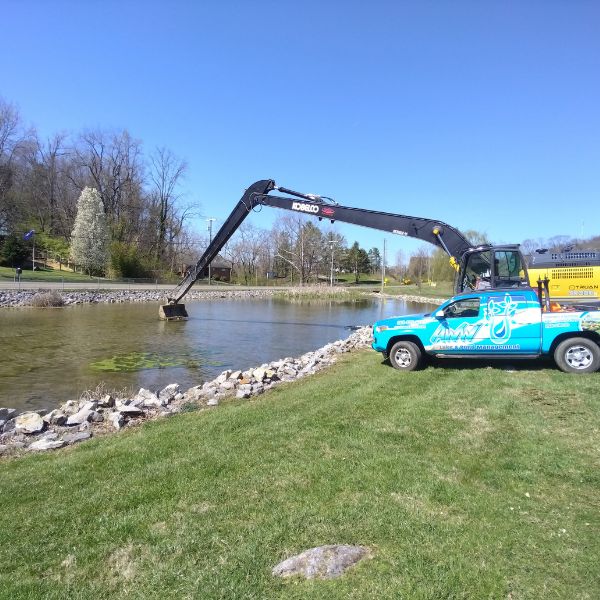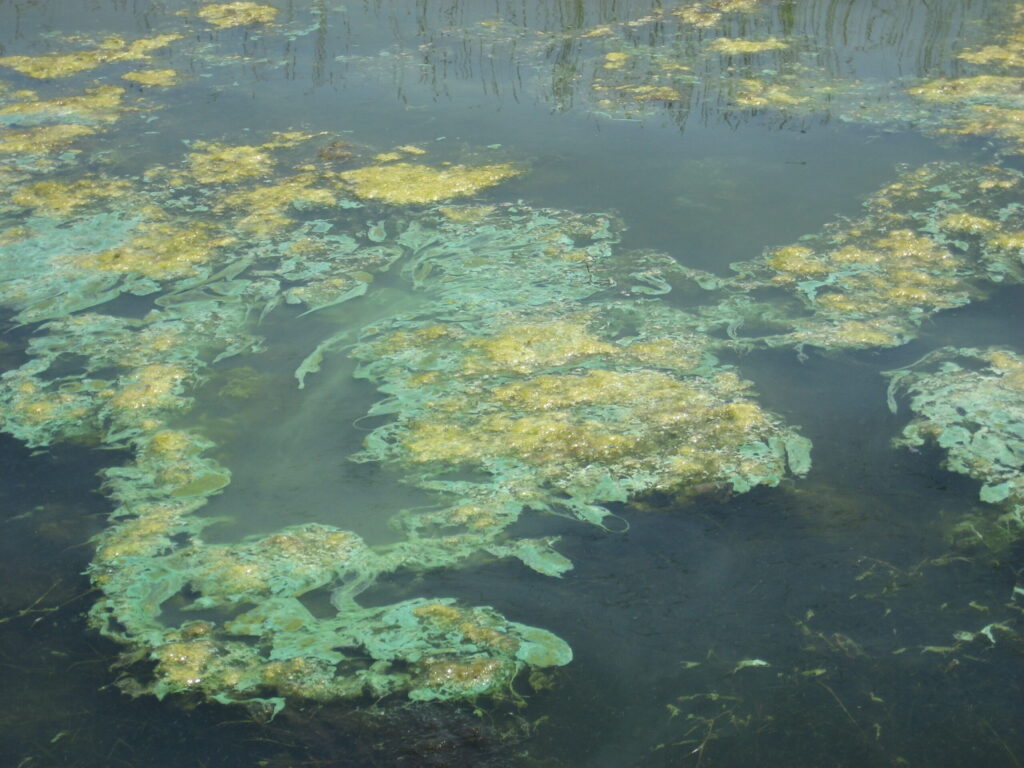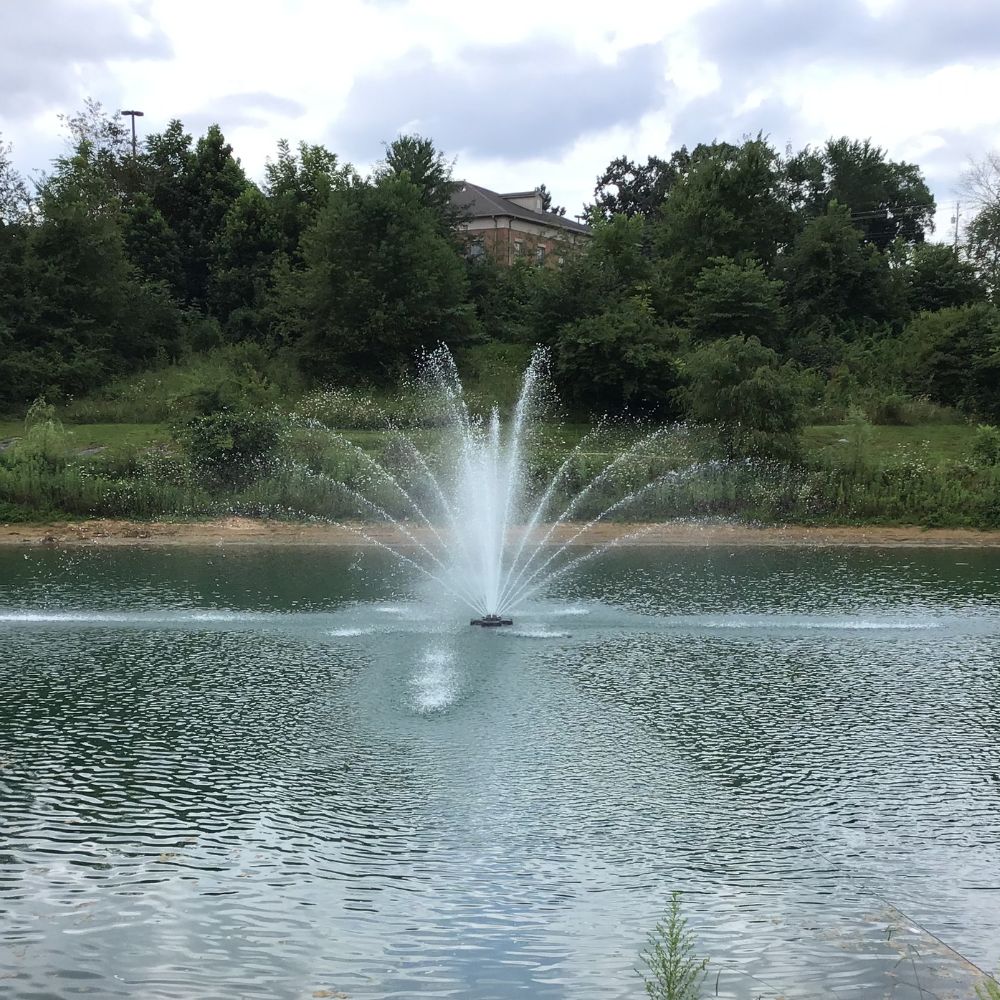A pond that smells bad is more than a backyard nuisance; it signals a chemical problem that can lead to fish kills, code violations, and costly dredging work. Across East and Middle Tennessee, homeowners and HOAs most often notice three distinct odors—rotten egg, musty earth, and fresh-cut grass—and each points to a different water-quality emergency. Understanding the cause lets you act quickly and call in Aquatic Weed Wizards for the proper fix before minor funk turns into a full-blown crisis.
Rotten-Egg Smell (Hydrogen Sulfide)
When the bottom of a pond loses oxygen, anaerobic bacteria break down the muck layer and release hydrogen sulfide gas, the same sulfur odor found in sewers. A thunderstorm that suddenly mixes deep water with surface water can burp that gas upward and stress or kill fish within hours. Installing a bottom-diffused aeration system restores oxygen at the sediment line and allows toxic gases to escape harmlessly into the air. In severe cases, AWW recommends hydro-raking or winter mechanical dredging to remove the partially decayed organic layer that continues to produce hydrogen sulfide.

Musty or “Basement” Smell (Geosmin and 2-MIB)
An earthy, damp-basement odor usually indicates that cyanobacteria or certain soil bacteria are releasing trace compounds called geosmin and 2-methylisoborneol. Humans can detect these chemicals at parts-per-trillion, so a light bloom is all it takes to make the whole shoreline smell off. Warm, stagnant water in small detention ponds is the perfect incubator, which is why late-summer HOA ponds, from Knoxville to Murfreesboro, often develop the scent. Boosting circulation with a fountain or converting to push-flow aeration strips the odor and prevents cells from clustering. A peroxide-based algaecide can knock down odor-producing algae and even chemically convert geosmin to an odorless form .

Fresh-Cut-Grass Smell (Active Algae Bloom)
If the water smells like you just mowed the lawn, a live planktonic algae bloom is underway. One inch of rain can wash enough lawn fertilizer into a one-acre pond to trigger a bloom in just two days. A simple jar test—scooping pond water into a clear jar and checking whether it remains green after twenty-four hours—reveals whether the bloom is free-floating rather than settling with sediment. Alum or newer phosphorus-binding treatments, such as Phoslock®, lock up excess nutrients and sink the bloom’s food supply. Spot herbicide on shoreline mats, followed by aeration, prevents a nighttime oxygen crash that could harm fish.
Why Quick Action Matters
Fish kills triggered by hydrogen sulfide or sudden oxygen crashes devastate pond ecosystems and smell even worse. Tennessee stormwater rules list objectionable odors as a type of nuisance discharge, putting HOA boards at risk of citations when ponds emit unpleasant odors. Real estate studies show that recurring algae blooms and foul odors can cut lakefront property values by ten percent or more.
What Aquatic Weed Wizards Can Do for You
We start with a same-day dissolved-oxygen and nutrient test to pinpoint the source of the smell, then design an immediate solution—whether that is aeration, selective herbicide, or sediment removal—to restore healthy conditions fast. Monthly follow-up visits track progress until your pond is clean, clear, and odor-free again.
Ready to breathe easy? Call 865-622-8282 or request a quote today and let our local team keep your Tennessee pond fresh and healthy year-round.

